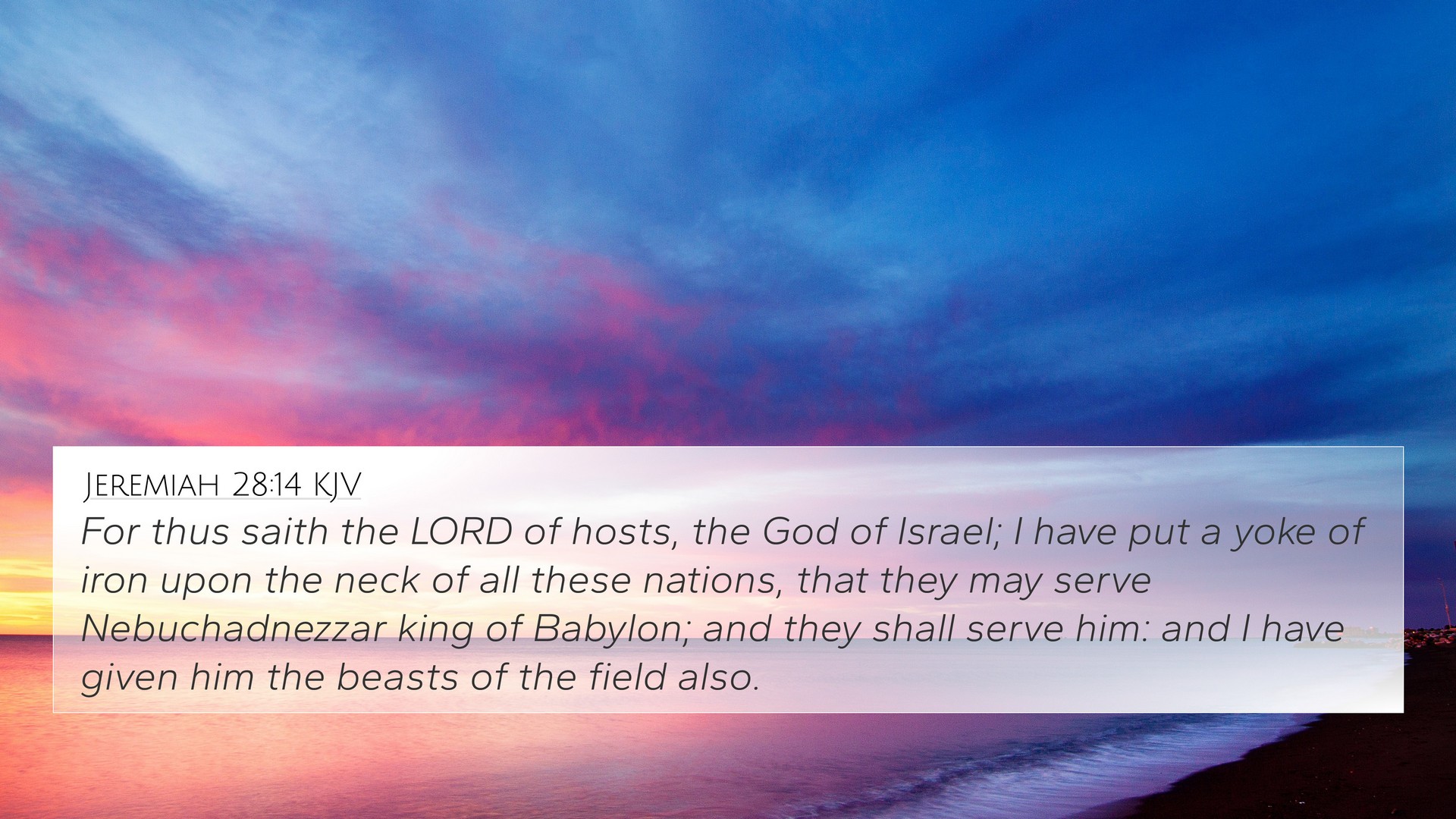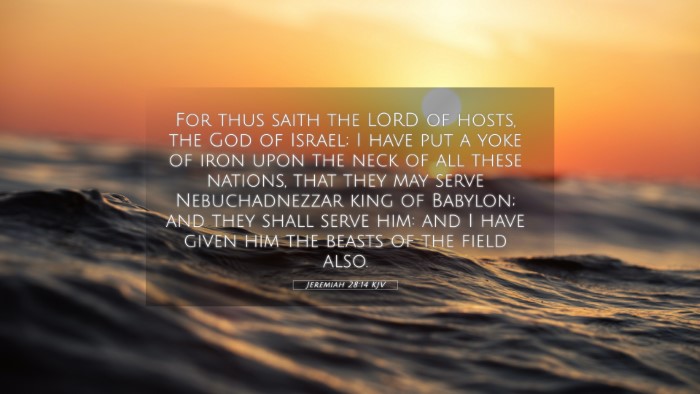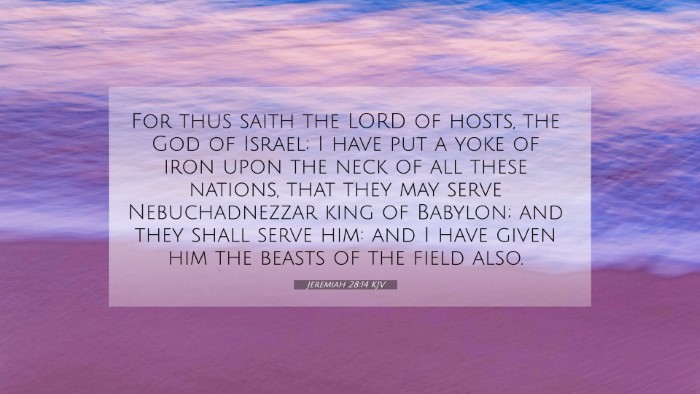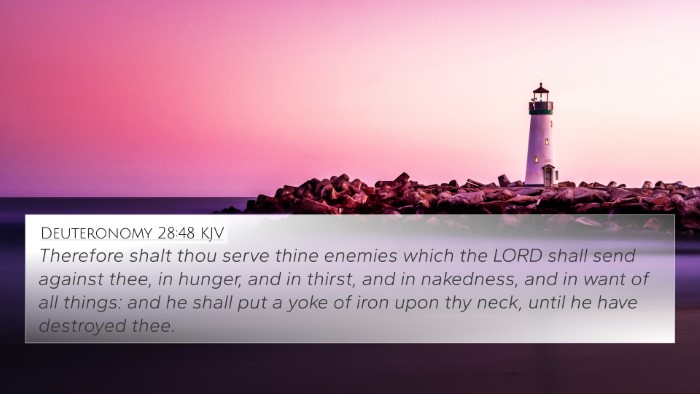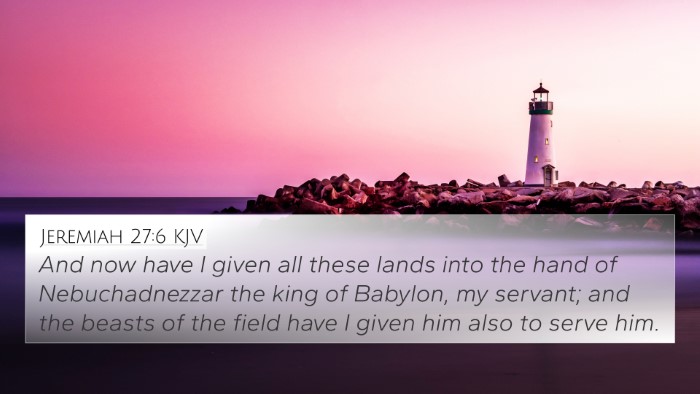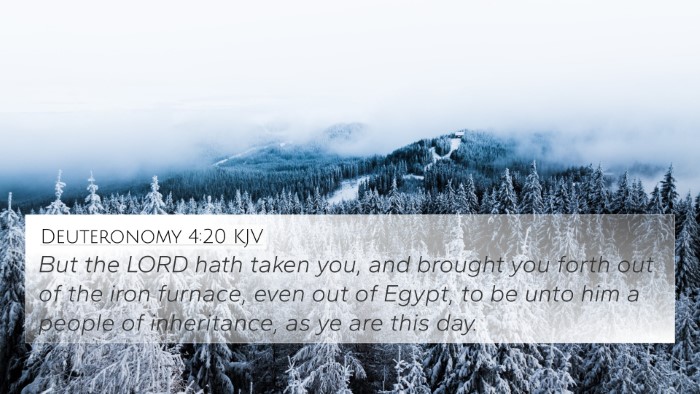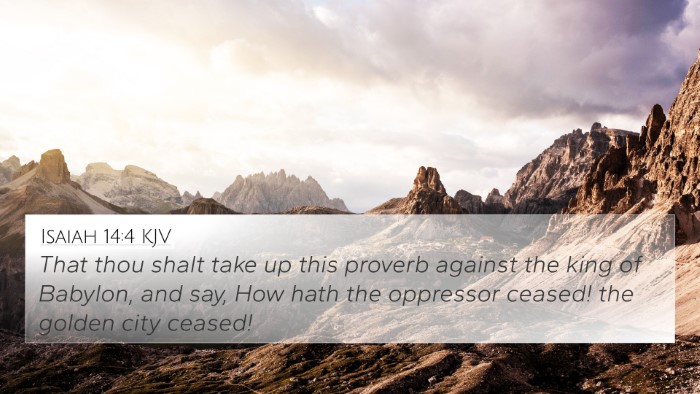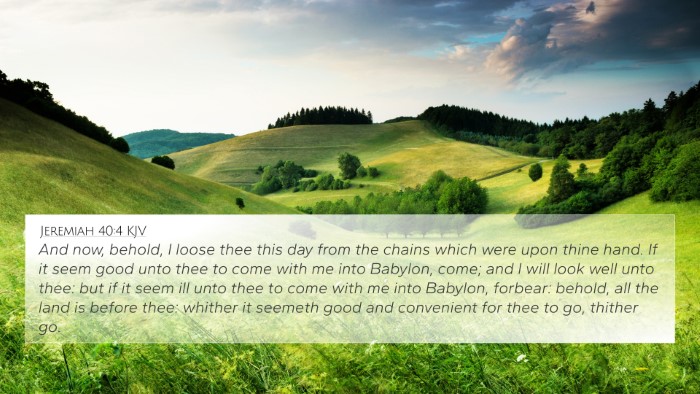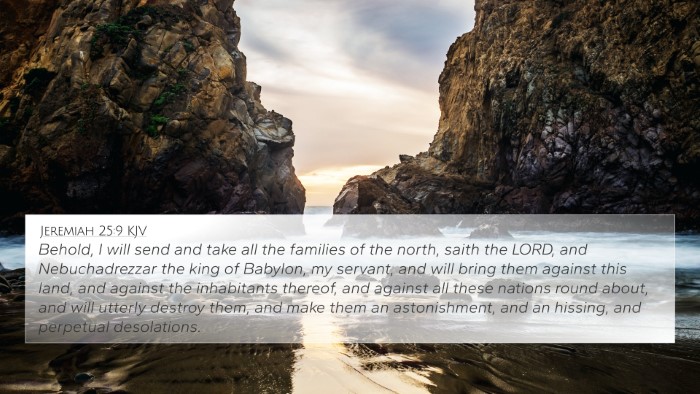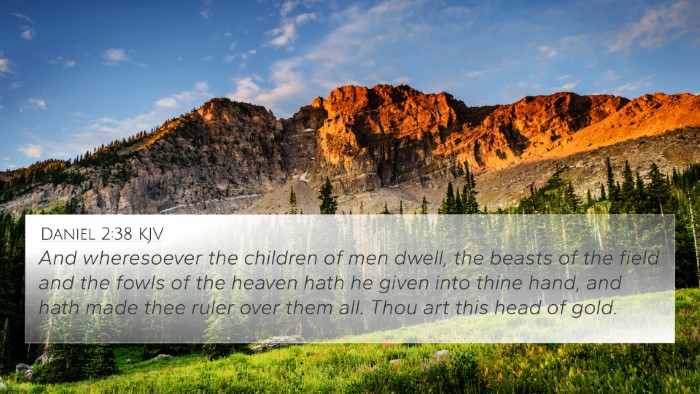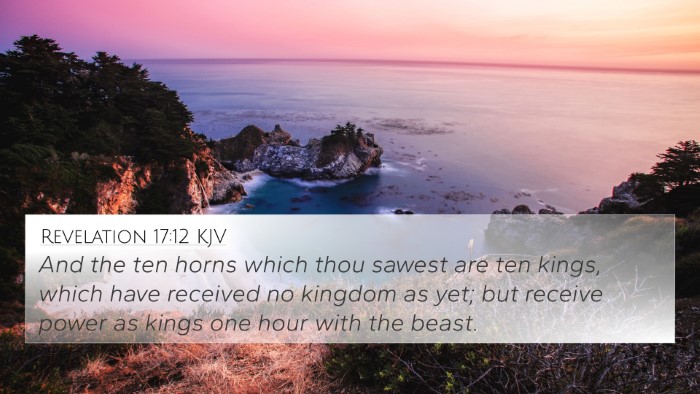Understanding Jeremiah 28:14
Verse: "For thus saith the LORD of hosts, the God of Israel; I have put a yoke of iron upon the neck of all these nations, that they may serve Nebuchadnezzar king of Babylon; and they shall serve him: and I have given him the beasts of the field also."
Summary of Meaning
This verse is a declaration from the Lord through the prophet Jeremiah, emphasizing God's sovereignty over nations and His use of Nebuchadnezzar as an instrument of punishment and authority. The "yoke of iron" symbolizes oppression and servitude, indicating that God has ordained Nebuchadnezzar's reign over the nations surrounding Israel as a divine judgment due to their rebellion against Him.
Commentary Insights
In examining this verse, several public domain commentaries provide additional insights:
- Matthew Henry:
Henry highlights God's authority and control over the affairs of nations, asserting that He uses kings like Nebuchadnezzar to fulfill His purposes. The yoke represents both the burden of servitude and the divine will that governs the nation’s fates.
- Albert Barnes:
Barnes elaborates on the symbolism of the 'yoke of iron,' suggesting that it denotes an inescapable and harsh bondage that the Lord has imposed on these nations as a consequence of their idolatry and disobedience. Nebuchadnezzar is seen as the chosen instrument of God's will.
- Adam Clarke:
Clarke focuses on the historical context and the physical representation of the yoke, elucidating how a yoke signifies the imposition of authority and control. He explains that this servitude was a direct result of the nations' refusal to heed God’s warnings.
Cross-References
This verse can be understood deeper through various cross-references throughout the Bible:
- Jeremiah 25:9: God declares His plan to bring Nebuchadnezzar against the nations as His instrument of judgment.
- Daniel 2:37-38: Nebuchadnezzar is recognized as the king of kings, appointed by God to rule over human kingdoms.
- Lamentations 3:27: A reflection on the suffering of the people, which relates to the yoke of oppression discussed in Jeremiah.
- Isaiah 10:5-6: God uses Assyria as a rod of His anger, similar to how He uses Babylon.
- Ezekiel 30:24: God’s power in breaking the yoke of oppression significantly parallels God's dealings with nations.
- Acts 17:26: Highlights God's sovereignty over the nations and His control over their appointed times.
- Romans 13:1: All authority is ordained by God, emphasizing that earthly rulers are God's instruments.
Thematic Connections
This verse contributes to a larger conversation about God's sovereignty, judgment, and the use of rulers in executing His divine plans. The oppressive nature of the yoke serves as a metaphor for spiritual and physical bondage, reinforcing the need for humility and repentance before God.
Tools for Cross-Referencing
For those studying the Bible, understanding the connections between verses can enhance interpretation. Here are several tools and methods used in cross-referencing:
- Bible Concordance: Helps locate verses that contain specific keywords.
- Bible Cross-Reference Guide: A resource that pairs verses based on themes and contexts.
- Cross-Referencing Bible Study Methods: Techniques used in personal study to connect scriptures.
- Bible Chain References: A method of linking verses that address similar themes or concepts.
Conclusion
Jeremiah 28:14 serves as a vivid reminder of God's sovereignty and His authoritative control over nations and history. Understanding this verse through commentary insights and cross-references reveals the depth of its meaning and invites deeper study into the themes of judgment, authority, and divine purpose regarding humanity's response to God. Study tools and methods enhance this exploration by demonstrating the interconnectedness of Biblical texts, allowing believers to better comprehend and appreciate the overarching narrative of Scripture.
